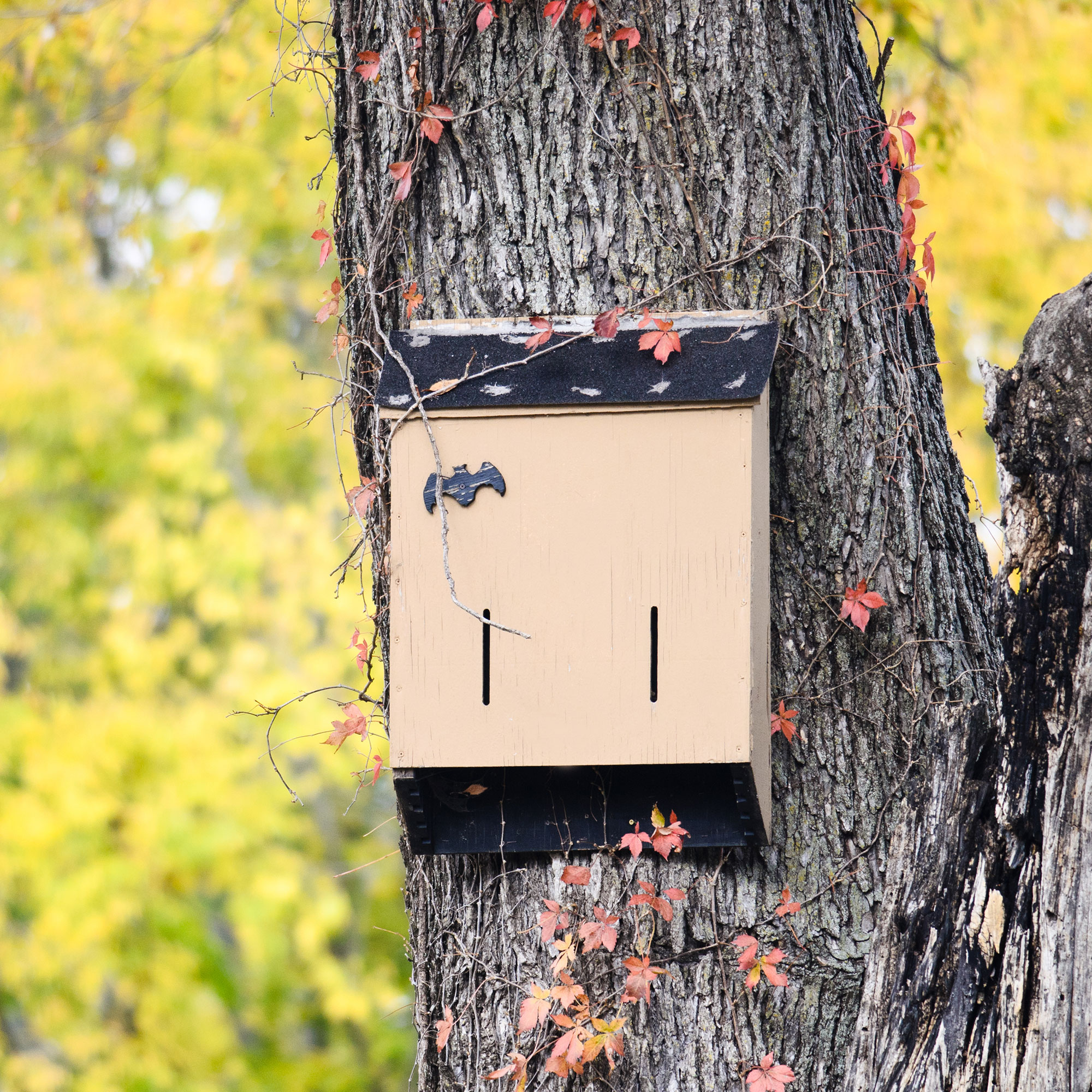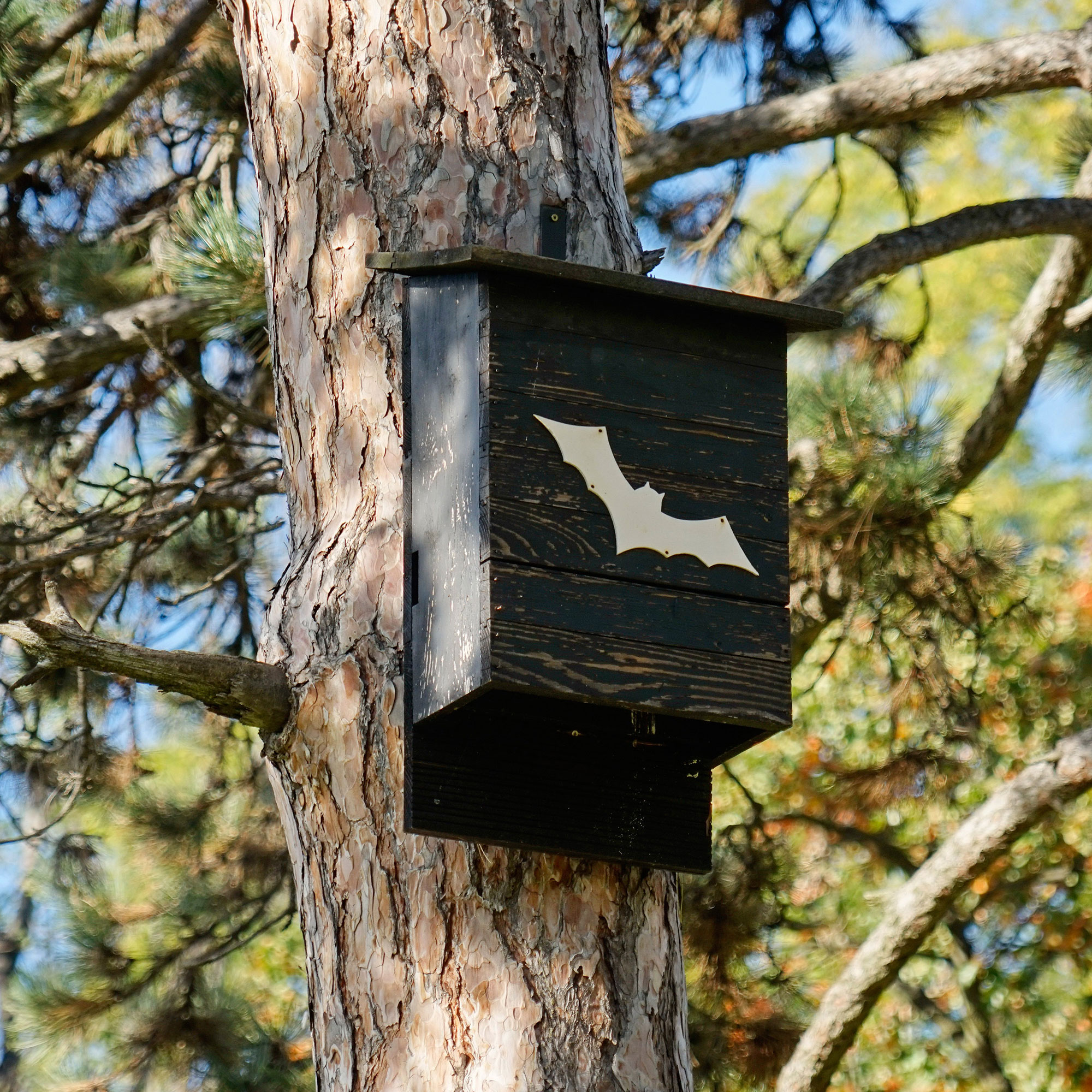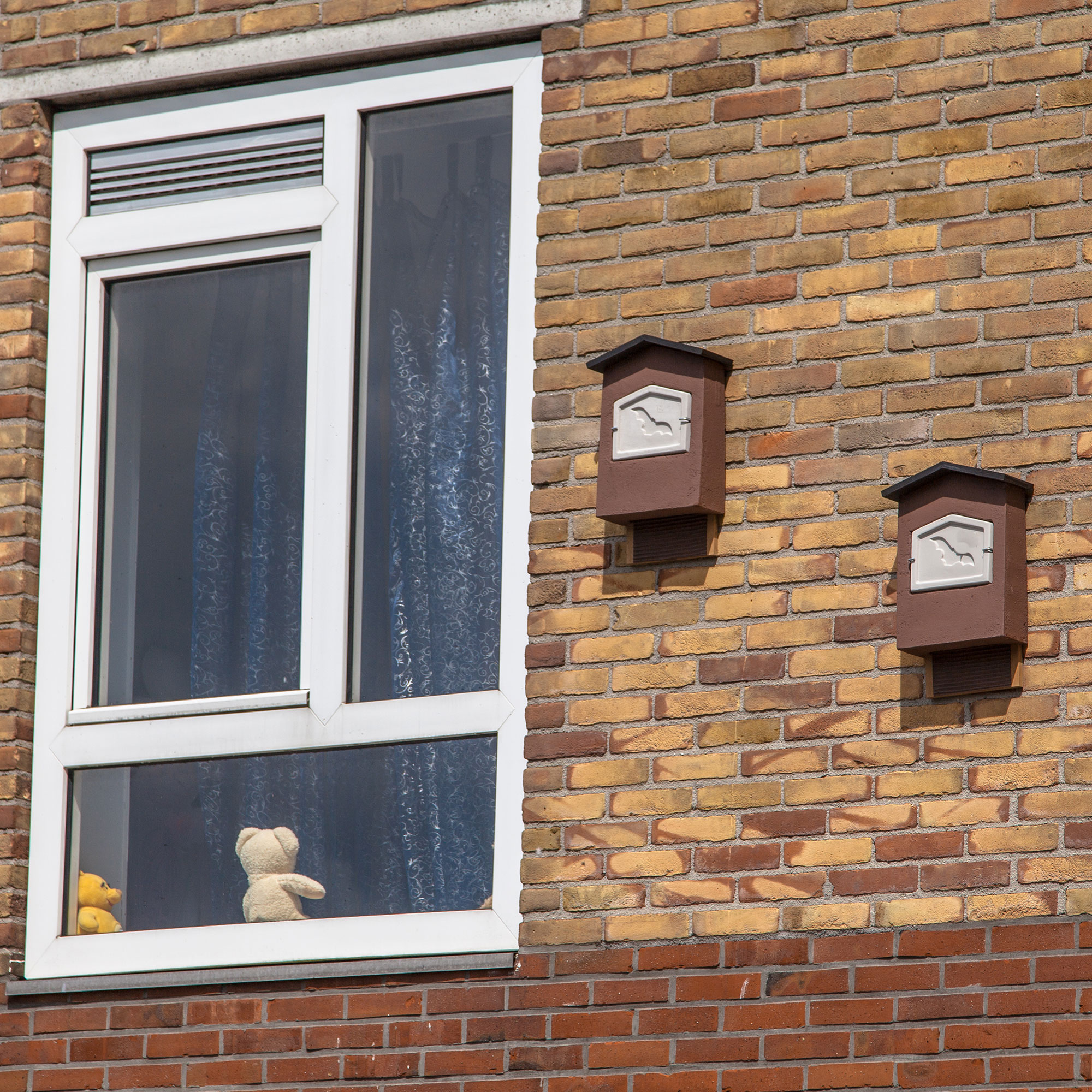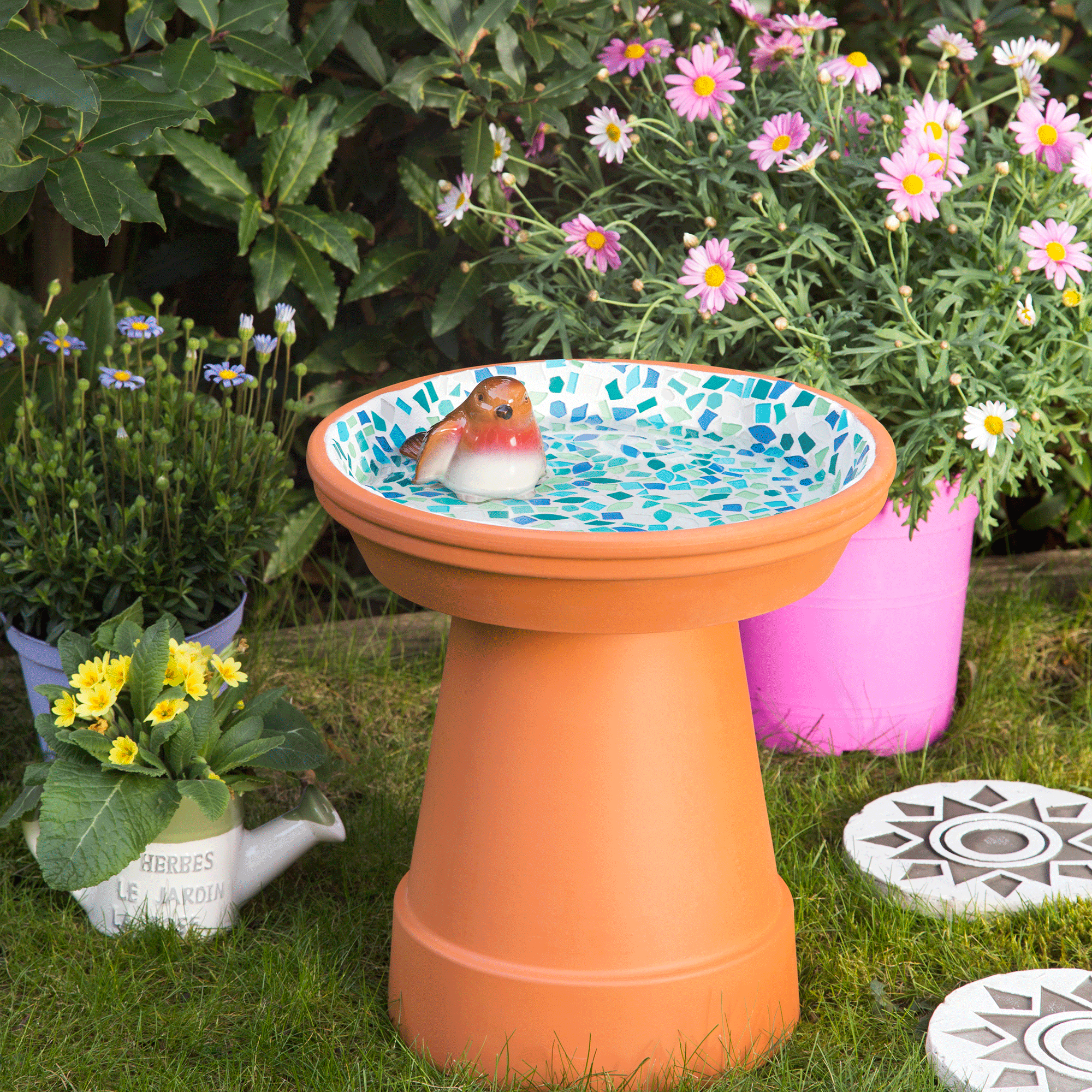
Like many other animals in the UK, bats are struggling as trees are chopped down and replaced with cookie-cutter new builds. With their natural roosts dwindling, it’s never been more essential to encourage bats in your garden. And that’s where a bat box can help.
Every homeowner should be doing everything they can to encourage wildlife into their gardens, and the best bird boxes and wildlife houses can do that. However, bats are often forgotten or left behind. And while they might not be as delicate as dragonflies or as cute as a house sparrow, bats can be a handy addition to your garden.
As well as offering biodiversity, bats are also insectivores (no, they won’t suck your blood), which means that they can keep pests and critters away from your beautiful flowers and crops. So, why not install a bat box and encourage more bats in your garden?
What is a bat box?
While bats often have a bad reputation, bats in the UK are harmless. Much like teenagers, they sleep all day and party all night. But unlike teenagers, they won’t eat you out of house and home or keep you up all night with their chattering.
Instead, they’ll keep to their own devices and stick to areas of safety. And you can provide this for them in the form of a bat box.

Tommy Wylde, wildlife expert and bat enthusiast at Floofmania explains, ‘A bat box, much like a bird box, is a place where a bat can sleep, stay hidden during the day, and rear their young.’
These bat boxes come in various different forms, from wooden boxes to integrated bat boxes that can be built into the exterior walls of your home. These boxes normally have different-sized vertical chambers, which replicate their natural roosts and allow the bat to climb into the chamber of their choosing.
However, if you’re planning on making your own bat box, it’s vital that you only use untreated wood so the bat doesn’t come into contact with any paints or chemicals. Choosing wood that’s also rough on the inside will also make the bat box more desirable to the bats, as they will be able to grip the surface easily.
It’s also essential to know that bats are a protected species in the UK. The Wildlife Trust website explains, ‘All UK bats and their roosts are protected by law, which means it is illegal to harm or disturb them. Once up, a bat box cannot be opened legally without a licence.’
Where is the best place to put a bat box?
If you want to provide the bats in your area with a welcoming and safe place to roost, it’s highly likely that you’re going to need to buy or make a couple of bat boxes.
‘Bats use different roosts throughout the year and also have different sites to hibernate. Unlike birds, which nest and move on, bats change locations across the year depending on weather and breeding. Sitting several bat boxes in different locations therefore increases the chances of occupation,’ explains Sean McMenemy, garden wildlife expert and director at Ark Wildlife.
But where exactly should you install these bat boxes? According to the Bat Conservation Trust, you should aim to place a bat box close to tree lines and hedges, as bats use these areas to navigate the local area via echolocation, as well as using them to hunt and feed.

However, you don’t want to put a bat box too close to the ground. To keep them far away from predators (like your neighbour’s cat), you should install a bat box at least 4m above ground level.
And in contrast to the rumours of bats and vampires, bats absolutely love the sun and warmth. Because of this, you should aim to shelter your bat box in a southerly direction, if possible. If not, south-east or south-west should be fine.
Lastly, it’s important to remember that bats are nocturnal and prefer the cover of darkness. So, you may need to reconsider your garden lighting ideas. Tommy explains, ‘They like when it’s dark, so get rid of any garden lamps and outdoor lighting which might confuse the bats and disrupt their foraging patterns (and ultimately make them less likely to come near your house.’
Just remember that adding a bat box to your garden doesn’t necessarily mean that you’ll instantly have bat visitors. The Bat Conservation Trust says, ‘Bats need time to find and explore new homes, and it may be several months or even years before boxes have residents – be patient!'
'Once bats find a place they want to live, they can return over and over again. Droppings on the landing area, urine stains around the lower parts of the box and chittering noises from inside on warm afternoons and evenings are signs of occupation.’
How to encourage more bats in your garden
Bat boxes are one of the best ways to encourage more bats into your garden, but they’re not the only way. Below, you’ll find even more ways to attract bats:
Plant night-scented flowers: Knowing how to get rid of moths in your home is essential, but you should actually be encouraging moths in your garden if you want to encourage bats. Sean says, ‘Bats are nocturnal insectivores and fly around consuming huge numbers of night-flying insects including biting gnats, mosquitoes and moths. The best way to attract bats to your garden is by inviting moths with lots of night-scented flowers.
‘I recommend planting evening and night-scented flowers that both look and smell great while also attracting moths to encourage bats to visit, including evening primrose, honeysuckle, Tobacco plant, night phlox, star jasmine, sweet rocket, and night-scented stock.’
Provide them with water: If a bat can get everything it needs from your garden, there’s a high chance that it’ll come back time and time again. And while insects and bat boxes provide food and shelter, what about water?
Well, this is something you need to think about. ‘Bats also need water to stay hydrated, so installing some water features, a fountain, bird bath, garden pond, or something similar could be a good idea,’ explains Tommy.

Grow some extra hedging: Although bats have fairly good eyesight, they rely heavily on echolocation to help them navigate and feed. To do this, they use high-frequency noises that then bounce off an object to create an echo. However, to use this echolocation, they need objects for the sound to bounce off of. That’s where garden hedges can help.
If your garden has a lot of hedging, the bat will be able to navigate freely around the area. So, you may need to grow some extra hedging to encourage bats in your garden. But if you don’t know where to start, our guide on the best hedging plants can help you with that.
Keep cats indoors at night: Of course, this is hard to do if you live in a neighbourhood full of cats. But if you have your own cat, try to keep it indoors at night so it doesn’t scare the bats. If a bat senses a predator nearby, it’s unlikely that it will come and stay in your garden.
FAQs
How do you increase bat population?
If you want to encourage bats in your garden, a bat box can help you with that. Bats are constantly on the lookout for safe havens to sleep, eat, and hide from predators. However, their natural roosts are often destroyed as a result of urbanisation.
As well as installing a bat box (or three), you can also plant night-scented flowers, provide them with a water source, remove artificial lighting from your garden, and try to keep predators at bay. This means you might have to bring your cat in at night.
If a bat finds solace in your bat box, it’s highly likely that it will return time and time again.
How do you attract bats to a bat house?
Installing bat houses in a warm, sunny location high above the ground and near hedging or tree lines is a surefire way to attract bats to your bat house. As well as searching for a warm and comfortable hiding spot, they also like to roost somewhere they can hunt.
Of course, they use echolocation to do this, which is why having hedges or buildings nearby is essential.
So, take this as your sign to add a bat box to your garden.







